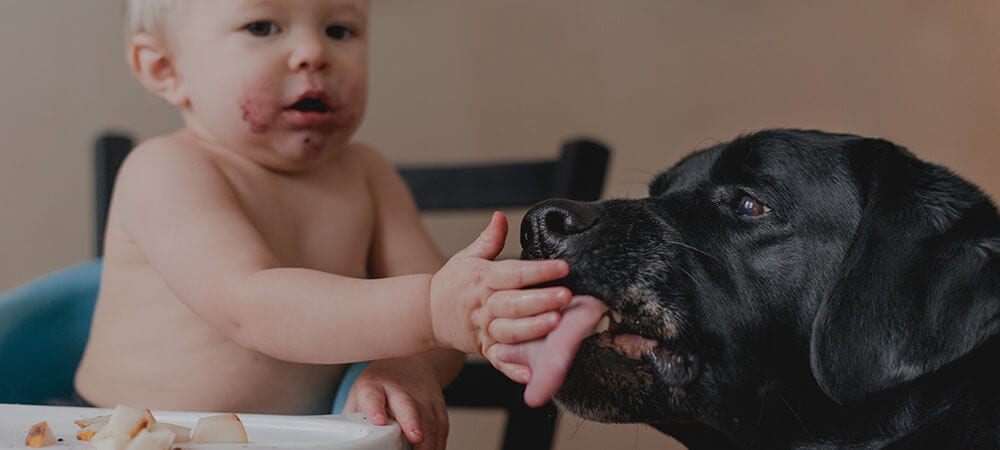The Dangers of your Pet Stealing your Food


Waking to the delicious smells of coffee brewing and breakfast cooking is one of the best ways to start a day. The aroma of pancakes wafting into your room rouses your hunger, which in turn rouses you, when you’d normally opt for another few minutes of sleep. Now, think about this scenario from your animal’s point of view. They have to smell your food every single time you cook. Smells of cooked meat awaken your animal’s innate curiosity, and hunger. Food smells also activate the same impulse wild animals have for the hunt. Ever see your kitty’s eyes dilate when they get a whiff of your chicken roast? If it smells and tastes good to them, cats and dogs will want it. And if they want it and can’t have it, they’ll try to steal it. Likewise, if it smells or tastes bad, it’s not something to be eaten or it could be poisonous, but it’s up to you, their caregiver, to ensure they don’t consume the bad stuff.
How Animals Decide What Food Is
The saying goes, “We eat with our eyes first”, but we actually tend to eat with our eyes, then our nose, then our mouth. Smells and taste help let our bodies know that meat and other foods are rotten and shouldn’t be ingested. Similarly, our furry buddies have pretty clear instincts on what is and isn’t tasty with their superior sense of smell and instincts; that doesn’t mean they always follow those instincts, however. Some pets are picky eaters, and some are garbage disposals that try to steal everything and anything in their path.
If you’ve had your pet for some time, you probably know which type they are. Some pet owners can leave a loaf of bread on the counter and their dog will never steal the food. For others, the moment they turn their back, the entire loaf along with the plastic wrapper will be in Fido’s stomach. As a pet owner, it’s important to understand if your animal steals human food and what you can and can’t give them. Some foods are perfectly safe for animal consumption, while others can be critically deceiving.
Dog Do’s and Dog Don’ts
There are plenty of healthy snacks that dogs can eat in moderation. Carrots, apples, and peanut butter are perfect examples. Be careful though, as not all seemingly healthy human foods are good for dogs. Grapes, avocados, and apple seeds can cause kidney failure and other health problems. Don’t leave food out to steal if your dog is prone to this.
Other common foods dogs love to steal include meat with bones. Bones can cause tears and clogs in your pet’s digestive system, but poultry bones are the worst because they have a tendency to splinter. Always remove bones before feeding your dog meat. Boiled skinless, boneless chicken and white rice are often recommended for dogs with upset stomachs. Before you decide to make your dog a Thanksgiving meal plate so they can join the family, be sure to check with veterinary sources to confirm if they are safe for pet consumption first.
Many of the spices used in human cooking should not be given to our animals and can cause diarrhea when your cat or dog steals food cooked with them. With some food, your pet will show immediate signs of rejection. Other foods can cause detrimental health problems over time, and not show immediate symptoms or signs.
Xylitol
Not many people know about xylitol and the dangers it poses to animals when they steal food. Xylitol is a common sweetener that is safe for people to consume but can cause seizures, liver failure, and death in both cats and dogs. Xylitol can be found in toothpaste, mints, gum, sugar-free items, jams, fruit drinks, baked goods, and even some brands of peanut butter! Be sure to read the ingredient label before you give any processed human food to your dog or cat. Don’t leave questionable munchies lying around.
Cat Do’s and Don’ts
A common misconception is that cats should be fed cream or milk. In fact, many cats are lactose intolerant and feeding them dairy products will cause vomiting or diarrhea. Cats are true carnivores. You may want to feed your cat raw meats in their diet, but be careful about the amount of fat they’re ingesting and consider the risks of E. coli and Salmonella associated with raw meats and eggs. Too much fat in their diet can lead to health risks like pancreatitis. Like dogs, don’t let your cat steal food such as grapes, chocolate, or anything containing xylitol.
It’s okay to supplement your cat’s diet with lean meats, like skinless chicken. They can also have cooked fish in limited quantities. Too much fish will deplete their vitamin E reserves though. Some cats may also enjoy fruits and vegetables. Foods like blueberries, bananas, pumpkins, peas, and cucumbers are safe for your cat to enjoy.
If you want your pet to have a diverse and interesting diet, it is a good idea to keep a list of the foods cats and dogs can’t eat on your refrigerator. Or ask your vet about what your specific fur ball needs for his optimal health and well being. To avoid your cat or dog stealing food, don’t leave food in places where they can access it. They may be domestic, but our animal friends are just as curious as their wild counterparts. Visit our resources page for more helpful info on your pet’s diet, health and more!



